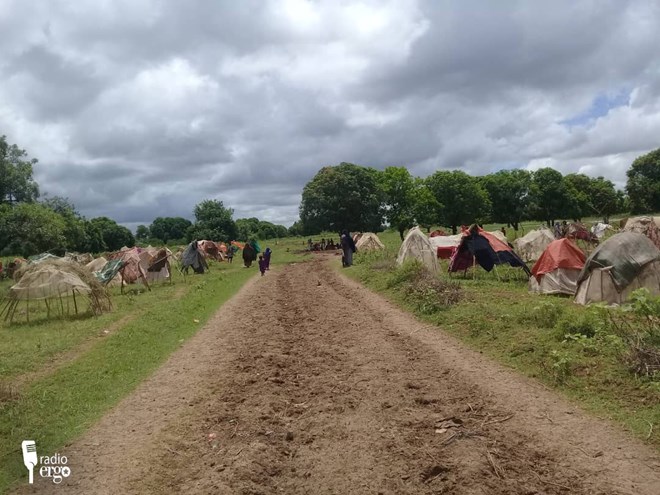
Thursday May 28, 2020

Small-scale subsistence farmers in Somalia’s Middle Shabelle region have lost everything to the recent flooding of the river Shabelle River that has destroyed nearly 20,000 hectares of farmland across 21 villages over the past month.
Ibrahim Mohamed Hussein, a farmer in Baroweyne village, one of the areas worst hit by the floods, told Radio Ergo he was left nothing.
“We don’t have any collateral on which to borrow more money. We are hungry and we are suffering. We don’t know how to face our lenders and our previous stocks are depleted. We need help,” he said.
With floods damaged by the flood waters, Ibrahim said the only way that residents of Baroweyne can get to Jowhar town is by using a thorny and almost impassable track, adding many extra kilometres to the journey.
Halimo Mohamed Abdullahi and her family of 11 depended on their farm in the village of Tugarrey, 20 km east of Jowhar, as their only source of livelihood.
“We heard the sound of the trumpet from the direction of the farms and everyone went running, trying to find out the reason for the alarm being raised. I feared for my children as I was not in the vicinity,” said Halima, recounting the early moments of the flooding.
Halima’s four-hectare farm, where she grew maize, sesame, beans, and a variety of fruits and vegetables, and some of the traditional huts she had built nearby, were all washed away.
Madino Da’ud Nur, a mother of five, recounted how the floods swept over her farm in the night, destroying all her crops, mostly tomatoes, pumpkins and sesame.
“If it were not for these flash floods, we had agreed [as farmers] to borrow from creditors as we wait for our harvest, and that once we celebrated Eid that way, we would be able to repay them for everything, including the fuel for running the water pumps,” said Madino.
Hirshabelle Minister for Water and Irrigation, Ali Haji, told Radio Ergo that shrubs had also blocked the big dam constructed by the UN’s Food and Agriculture Organisation near Marerey village in Jowhar.
He confirmed that Mahadday, Balad and Jowhar districts were the worst affected, but said there was little the ministry could do.
“We don’t have the economic capacity to overcome the floods, all we can do is to seek the support of our people, those in the diaspora and within Hirshabelle, including the business community and farmers, for self-reliance,” he said.
Isse Adan, the vice-chairman of Burfulle village near Mahadday, is among the affected farmers. The 56-year father of 24 children with three wives has the responsibility of being a village administrator, as well as head of a large family.
“My adult children are my neighbours. We are now all staying together with their children and spouses. The floods destroyed five of my farms where I grew maize and beans, and six of the houses,” said Isse.